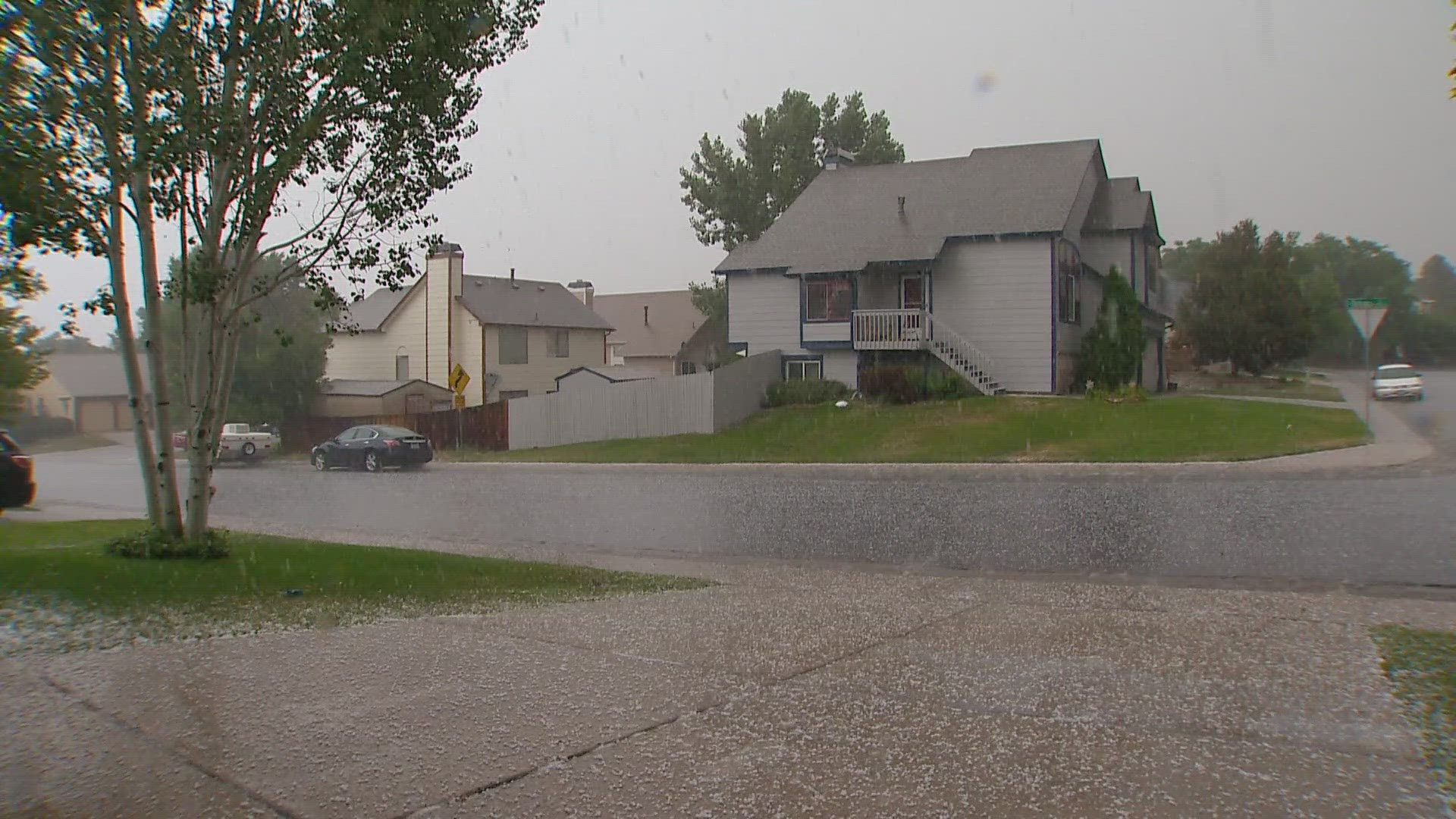DENVER — Heavy rain that flood streets and property. Powerful winds that bring down trees and damage homes.
It's the destruction from this summer's storms we we could clearly see but there was something those storms likely caused that none of us saw. An increase in radon gas levels.
"It's a colorless invisible gas. It's a little bit radioactive. It's not healthy to breathe," said Colorado Geological Survey Deputy Director, Jill Carlson.
It's something Carlson talks about a lot.
"We have pockets of high radon here in Colorado," she said.
Radon is a naturally occurring gas that comes from the earth, the result of decaying uranium. It is also the number one cause of lung cancer among non-smokers.
The gas can seep into your home through openings and cracks in the foundation. Extreme weather can make the problem worse.
"There's two paths for elevated radon in response to storm events," Carlson said.
According to Carlson and the Colorado Department of Public Health and Environment, heavy rain and wind can temporarily increase radon levels.
While there isn't any data specifically for Colorado, nationally radon levels have been shown to increase in big storms.
"The air pressure, atmospheric pressure drops, just before and during the extreme weather event and that would cause a slight increase in off gassing the soil," explained Carlson. "Off- gassing and the gases that emanate from the soil contain radon."
Carlson said rainwater percolating through soil can also pick up and give-off radon.
Bottom line, she said is to test. Even if you have a radon mitigation system, now is the time to make sure it still works.
"To make sure your fan is still working, that there's not blockages, that its still working effectively and doing what it's supposed to do," she said.
Some simple steps, even a totally free test, to give you peace of mind and safe air to breath. The state health department is recommending all Coloradans test their homes for radon.
If your home does have elevated radon levels the agency has a low-income mitigation program for anyone who needs assistance.
SUGGESTED VIDEOS: Colorado Climate

